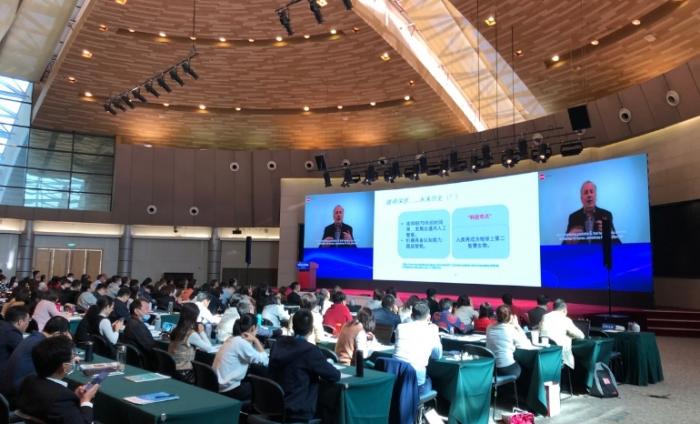
The Shanghai National Accounting Institute (SNAI) seeks to; provide specialised education to senior financial and accounting professionals, cultivate high-end talent for the accounting industry and provide advanced continuing education for macroeconomic regulators, large-and-medium-sized SOEs, financial institutions and intermediaries. Established in 2000, as a public service institute affiliated with the Ministry of Finance of China, SNAI celebrated it’s 20th anniversary this year.
SNAI has created its own unique teaching philosophy and methods underpinned by the three pillars of education, executive development program and distance education and over the years it has established a global reputation and become a ‘spiritual home’ for accounting practitioners.
Earlier this month UCL School of Management’s Deputy Director, Alan Parkinson delivered the opening speech at the SNAI 2020 Management Accounting Forum. The theme this year was ‘Responding to Uncertainties - The Essential Mission of Management’.
Alan Parkinson - ‘Management Accounting: Relevance Regained and Evolving in a Volatile Uncertain Complex and Ambiguous (VUCA) World’
Alan’s session focussed on the continuing but changing role of management accounting in supporting effective management in the brave new and increasingly VUCA world.
In 1987, Johnson and Norton’s seminal publication Relevance Lost: The Rise and Fall of Management Accounting prompted at least two decades of engineered evolution in the management accounting arena. Such evolution witnessed the emergence of a new management accounting paradigm to support management teams as they engaged with the challenges presented by the phenomena of globalisation, technological change and new organisational structures.
That paradigm reflected new sets of assumptions, concepts, values, and practices underpinning different ways of viewing reality for the management accounting community. The phenomena challenging management teams underpinning Relevance Lost remain but with even greater significance. Additionally, emerging phenomena are altering the business landscape challenging management teams still further - and will continue to do so.
Alan’s session provided a contextual backdrop to such emerging phenomena and their impacts on the management accounting process, and particularly regarding the development of resilience, considering a range of relevant reports and studies. In so doing it sought to stand alone as a succinct compendium of views on the future trajectory of management accounting in support of the art and science of management.